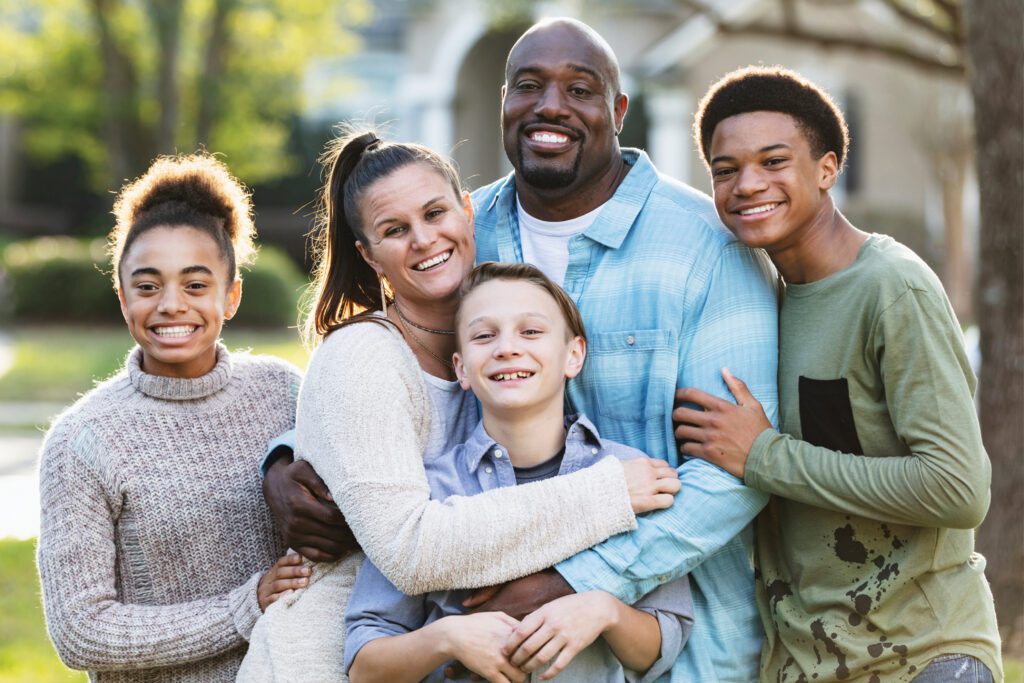Think Before You Leap
Unfortunately, the statistics are against you. While 50% of first marriages end in divorce, approximately 60% of second marriages fail. Evidently many of us are slow learners. And yet as aware as we all are of how difficult a marriage can be, we usually do try again.


Depending on whose statistics you believe, approximately 80% of divorcees will remarry, and, although somewhat more age-dependent, so will the majority of those unfortunate enough to be widowed. So the question is what can we do to improve our chances for a successful second marriage? In the discussion that follows, we’ll consider both questions and issues that might help.
Are You Finished with Your First Marriage?
Yes, we know you’ve been divorced for several years, and that you knew your marriage wouldn’t succeed months or even years before you left, and that you’re so much better off without him or her, etc. Nevertheless, if you still get really angry every time you think about your ex-spouse, you’re not emotionally divorced. Note, we’re not talking about the “normal” irritations you experience when he or she does annoying things like not sending child support on time. We’re talking about feeling really angry (or really sad for that matter) when you’re discussing your ex with a friend. Strong emotions indicate an emotional involvement. Without being crass, you need to get over him or her. If necessary, enlist the help of a therapist. It’s really hard, if not impossible, to totally be involved with a new spouse if you haven’t let go of your ex.



Warning signs: If you’re dating someone who spends an inordinate amount of time discussing how awful their ex was you might want to think twice before becoming too involved with him or her. Rarely is a divorce 100% the fault of one person. So if you hear constant blaming or even constant references to an ex, you’re likely involved with someone who is not either emotionally divorced and/or likes being in a victim role. Such an individual is really not a very good candidate for a healthy long-term relationship.
If you have lost your spouse because he or she died, you too must come to a place where you can accept the loss of your spouse. Hard as it may be, you need to move through the stages of grief and loss before you can truly be available to someone else. You should never forget you spouse–how could you, if you truly loved them–but you must accept that he or she are gone. If you had a good marriage, your deceased spouse would want you to have a happy life with a new partner. Keeping this thought in mind may help.
What Have You Learned?
Never ever waste a mistake. You want to learn from your experience with your first spouse so that you don’t repeat history. Oddly enough, this process involves acknowledging what was good about them, as well as what you didn’t like. Even if your partner was a total jerk, he or she probably had moments of kindness, caring, and compassion. After all, something attracted you to the person. And, without beating yourself up, particularly if you were the one who was left, you need to take an inventory of what behaviors made you difficult to live with and how you may have contributed to the problems in your first marriage. Again, do not beat yourself, or for that matter your ex, up. Learn what works and doesn’t work for you in a relationship. Change those behaviors of yours which make sense to change. Avoid relating to someone new who exhibits the same behaviors you couldn’t tolerate in your first marriage.
Know What You’re Looking For
A truism: You really need to believe you can create a happy and satisfying life without remarrying in order to remarry successfully. Many, many of the problems in second marriages arise because one or both partners were “desperate” to remarry.
Desperation has a friend called bad judgment.
So, create a check list that reflects your needs and what you have to give to your new partner. Then look for approximately an 85% match. If you find a 100% match you’re missing something. Actually, you probably do need close to a 100% match on the “big three” for a successful relationship. These are:
- Similar views on finances. If one of you is extremely frugal and the other is an unapologetic spend-thrift, you’re in trouble.
- Being able to argue to a solution, preferably within 30 minutes. If you think you’ll have a conflict free relationship, I have some land I’d like to sell you.
- Sexual compatibility. No, you don’t have to have perfectly matched libidos or interests, but don’t underestimate how serious problems in this area of marital relations can become.
These three relationship issues are the leading causes of divorce in the United Staes, be it first or second marriage. Step children pose another significant problem for second marriages; this issue will be addressed later.
Besides the big three, most successful marriages involve individuals with common interests, similar spiritual values, similar positions on the neat-messy continuum, approximately equal needs for time together-time apart, and compatible in-laws. More about this one later.
Again, you’re extremely unlikely to find a person who will be a perfect match for you. By definition, a healthy relationship requires both of you to be flexible, adaptable, and tolerant. Be careful, however, of compromising your check list too much or you may have the opportunity to see if you can make a third marriage work. For what it’s worth, third marriages tend to be more successful than second marriages.
Do They Have Friends?
And do you like them? Now we’re assuming of course that you’re not pathologically possessive or jealous and can share your new partner with others. It is, however, a bad sign if he or she does not have friends (just as it’s not really great if you don’t have any). We have to ask, why doesn’t he or she have friends? Consider being in a 50-year marriage with someone who is friendless. Are you really sure you want to do that? Healthy friendships enhance a marriage; unhealthy, or lack of friendships, will generally harm a marriage.
Meet the Family
We never marry an individual; we marry an individual and his or her family. While your or your partner’s relationship with either of your families does not have to be perfect, be leery of too much dysfunction in this area. Signs of potential problems include, but are not limited to, the following:
- Someone who has to consult with his or her parents before he or she make a significant decision.
- Someone whose family is extremely intrusive in their life.
- Someone who is afraid of a parent (parents) and who defers to their parent(s)’ wishes before consulting you.
- Keep something else in mind. If your new interest’s parents were fond of his or her ex, you will always be the other person who frequently is seen as the cause of his or her divorce (regardless of reality.) You will always be an outsider. Be very careful of entering into this situation unless you are very, very sure your new spouse will put you first.
And, of course, turnabout is fair play. You need to put your new spouse first even if he/she is the other man/woman to your family. If you’re not prepared to do this your new marriage will, at best, suffer if not dissolve over time.
Once We Get Married, He or She Will…
Be less jealous. Quit drinking. Be better with my kids. Not lose his or her temper.
Never, ever make this mistake. If you made it in your first marriage, hopefully you’ve learned that rarely, if ever, does someone change a dysfunctional behavior simply because they get married, no matter how wonderful you are. If your new interest has behaviors you cannot accept, you need to see them change—and stay changed—prior to marrying them.
Be very honest with yourself. Can you really live with his or her controlling behavior, drinking, chronic lateness, ignoring or being jealous of your children? Remember, there’s a huge difference between learning to live with someone who folds the laundry differently than you like versus someone who drinks to excess, is emotionally abusive or, pathologically jealous, etc.
Be particularly attentive to how your prospective spouse handles anger. If you see rage reactions–screaming, breaking things, etc., or total withdrawal when he or she is angry, you’re going to have problems. Of course we are assuming that you tend to handle anger in a reasonable, open, solution-oriented way.
About the Children



Books have been written about learning to blend families. Suffice it to say the majority of individuals getting married for the second time are going to have to deal with the issue of children, blended families, and styles of child rearing. And we haven’t even gotten to the potential problems that can be caused by the involvement of ex spouses and visitation issues. Let’s consider a number of possible scenarios and what to be prepared for:
Neither of you have children.
Assuming you’re remarrying when you as a couple could have children, you both need to honestly address two questions: Do you want to have children, and when? At the risk of sounding like a broken record, you two need to deal with these questions before you get married. Surprising your new spouse with your previously unspoken desire to have, or not to have, children often leads to serious marital difficulties.
You have children; your new partner does not.
How does he or she relate to your children? While it’s very nice if everyone likes each other and gets along swimmingly, reality is often a bit different. What you need to see is that your new partner respects your children and your need to spend time with them. What you don’t want to see is jealousy or a total lack of interest. You also need to be patiently firm with your children. Especially if they are close to your ex, they may not be overwhelmingly enthusiastic about your new partner. They don’t have to be. You do, however, need to see that your children are respectful of your new partner and that they show him or her common courtesy.
Your new partner has children; you don’t.
Be very, very honest with yourself. Are you willing to deal with someone else’s children, who may, or may not, accept you? Are you ok with juggling your schedule around visitation, holidays, etc.? Can you accept that your new spouse needs to talk to his ex to make arrangements that frequently affect your life? Think about these things carefully. You want to enter the role of stepparent willingly and realistically, or you’ll be in for a really bumpy ride. In both of the above scenarios, make sure you and your intended agree on how you’re going to handle discipline and decision making around the children, particularly when the biological parent is absent. In my practice the question of how and when the non-biological parent is involved in disciplining the biological parent’s children is one of the most contentious issues that second-marriage couples have to deal with.
You both have children.
Well now, talk about an interesting challenge. First, a reality check. Forget all those cute and clever movies where after a month or two of rather humorous misadventures my three children and your two children all become best friends and love each of us dearly. The best research we have indicates that under “normal” conditions, whatever that means, it takes between 5 and 7 years for two families to blend well. That’s what I said, between 5 and 7 years. The rewards can be great, but expect the job of blending two families to be challenging, frustrating, and at times exhausting. If you and your intended are realistic, energetic, and willing to work at it, you can create something special out of your two sets of kids. Just be prepared for a job that at times will seem like mission impossible, and don’t run away, no matter how much his or her children might like you to.
About Those Ex-Spouses
More than likely, both you and your new partner have one, and one is often more than enough. Although most divorced couples, especially those with children, are civil and relatively reasonable with each other, a significant number are neither. Power and control issues that were part of their marital problems continue long after the divorce. At times a spouse who has not solved all of his or her co-dependent tendencies can stay over-involved with a manipulative and/or pathological ex. Often individuals who have been married to an alcoholic or substance-abusing spouse still spend hours on the phone with their ex, trying to “help” them with they’re under the influence. Guess how your new spouse feels about this?
Whatever the reason, over-involvement with an ex-spouse is going to cause problems for you and your new spouse. While you have to be reasonable—your new partner has to discuss visitation, pick-up times, insurance, etc., with his or her ex—be very cautious about marrying someone who is either constantly fighting with, or constantly trying to “help” their ex. Again, it’s a question of has your new partner really achieved emotional divorce? If not, you’re going to have problems.
About Comparing
It’s pretty hard not to and maybe comparing your new interest to your ex is ok to a point. Certainly you’re looking for improvements in behavior and you certainly want to notice these. However, it’s rarely a good idea to share your comparisons with your new spouse, even if he or she is coming out on top. After all, to do so, you have to bring up your ex. This is probably not a topic that your new or potential spouse really wants to spend hours discussing.
If you’re widowed and were in a good marriage, keep in mind that your new partner, while sympathetic to your loss, rarely will like prolonged discussions about your deceased spouse and what a great person he or she was. Keep in mind that the new person in your life will often hear an implied comparison-and often criticism-when you discuss your former partner in glowing terms. If you feel a need to reminisce, do so with a good friend.
In Closing
No check list is fool proof or all inclusive and certainly mine isn’t. Keep in mind, we all act healthier than we are when we’re dating. Nevertheless, asking the right questions and being a good observer can at least increase the odds that your second marriage will succeed.

